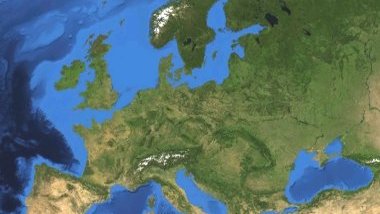Fanciful pragmatism
English as the common language? One wonders who would enjoy having Brussels fonctionnaires who have long instinctively spoken English, or rather Globish, a sort of rudimentary, depreciated English devoid of nuance that irritates the English themselves.
This “poor English” has disastrous consequences for the EU and, above all, Europeans. Far from facilitating understanding between groups of people, this kind of simplification leads to an impoverishment of thought and reduction of clarity. The French concept of service public, for example, is completely untranslatable to English. It could be translated as “commodities”, “public services” or other expressions, but none of them convey the real meaning of the concept. When it comes to translating the concept into Swedish, one cannot but give up because service public covers five different concepts in Swedish.
The use of “Globish” has brought about laziness on the part of the Commission and other European institutions which cannot even be bothered to translate their websites, their position papers or working documents to French, German or Spanish, languages spoken by millions of Europeans. Instead of bringing peoples closer to each other, the use of Globish has widened the gap between a European elite that speaks it, usually badly, and the majority of Europeans that doesn’t speak it.
French, a language for the future
Adopting a common language would be a mistake, but if we were to use a common working language, we might as well pick French. French is THE language of diplomacy. All the big international agreements have been written in French, even among the English whose kingdom was founded by the French in 1066. France is the only European country that has conquered all of its neighbours and a large part of Europe. And all the European countries that saw the gracious passage of Napoleon’s armies through them inherited the metric system, the civil code and institutional reforms introduced in the context of the French revolution, contributing to the strengthening of local monarchies after the French military had returned home.
More credibly, as the President of the European Commission declared, English isn’t a very useful language with Brexit going on, whereas French appears to have better prospects. Moreover, let’s not forget that French is a language rich in onomatopoeia, puns and other colourful expressions that are still frequently used in difficult European negotiations. In sum, it’s beyond doubt that French is relevant.
United in diversity
Now that our English neighbours have decided to leave us, we can finally make decisions together, without being disturbed by their systematic refusal to deepen European cooperation or, even worse, attempts to sabotage it from the inside. A language is never neutral. A language is not only words, but a vehicle for thought and an ideological framework. In the case of English, the language carries a neoliberal set of thoughts that damaged us through the subprime crisis of 2007–2008 and the European public debt crisis. It is a system of thought strongly rejected by continental Europe and its peoples who have on several occasions questioned the influence of these ideas on the EU and its legislation.
More than the use of the English language, what Europe needs is a return to the use of French as a language of diplomacy, and above all, real use of the diverse array of existing languages. Europe is blessed with more than twenty national languages conveying numerous different ideas that constitute as many possibilities for the shaping of policy and mutual enrichment. Being subjected to impoverished English would not only be tantamount to a loss of our identity, but also a loss of our mental faculties, creativity and our capability to imagine alternative futures. To conclude, to adopt English would be to lose ourselves.
This is a translation of Rémi Laurent’s original article published on Le Taurillon. Find it here: https://www.taurillon.org/l-anglais-langue-commune-et-puis-quoi-encore





Follow the comments: |
|
